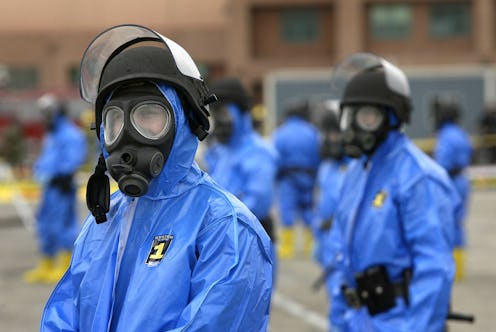News
Mexico Has a Radioactive Material Thief
Erm ... Happy Hump Day? On Wednesday morning, the U.N.'s International Atomic Energy Agency raised the alarm that a truckload's worth of radioactive material was stolen in Mexico on Dec. 2. The truck carrying the steal-reinforced containers had originally departed from Tijuana to transport radiotherapy equipment to a hospital. Then, less than 40 miles short of Mexico City, the truck stopped at a gas station, was surrounded by armed men, and was stolen.
The U.S. Department of Homeland Security is currently collaborating with Mexican authorities to investigate the whereabouts of the truck. In the meantime, news outlets are alerting readers that the truck is a white Volkswagen Worker Truck, license plate 726-DT-8. Mexican's National Commission of Nuclear Safety and Safeguards has yet to release any details as to who might have stolen the material.
There's a severe risk that the radioactive material could be used for a "dirty bomb" — which is what you get when you cross radioactive material and a traditional explosive (such as dynamite). While dirty bombs are categorized as "weapons of mass disruption" (rather than "mass destruction") there can still be some serious casualties from the explosion and the radiation combined.
Even if the thieves don't create a dirty bomb out of the material, radiation is still a big risk. The radioactive material in question was cobalt-60, which is used in radiotherapy to eliminate cancer, yet also emits strong gamma rays and radiation that may cause cancer after prolonged exposure, according to the Environmental Protection Agency. If the cobalt-60 is thrown out and makes it into municipal landfills, the environment is also at risk of exposure. Only through special equipment can the cobalt-60 radionuclides be detected.
In 2013, 24 instances of theft or loss of radioactive material have occurred. There have also been 17 instances of people illegally possessing and attempting to sell nuclear material, according to the IAEA. Japan's Fukushima leak may certainly take the cake for being the most newsworthy radioactive scare of the year, but this incident in Mexico is nothing to laugh at.
